Israel at War: What happened on Day 62?
Israel reportedly preparing to flood the Hamas tunnel network in Gaza • US Navy shoots down drone from Houthi-controlled Yemen
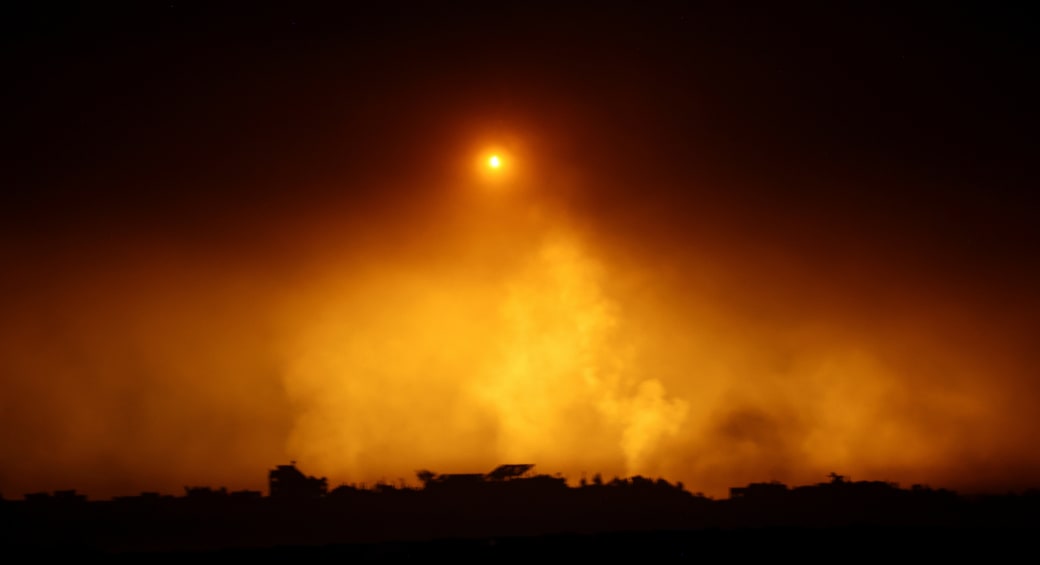

Israel's Knesset unites in mourning for minister Eisenkot's fallen son
"We are crying with you, and we are embracing you," Prime Minister Benjamin Netanyahu said.
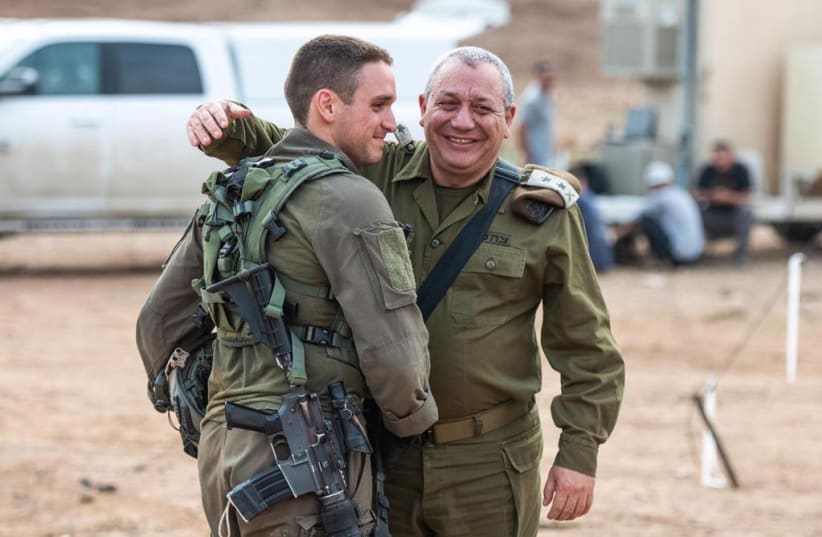

Israel's Knesset rallied in support of Minister Gadi Eisenkot from National Unity after his son Gal was killed in action in Gaza on Thursday.
National Unity leader Minister Benny Gantz sent his condolences to Eisenkot and his family, saying that everyone was committed to continue fighting for the cause for which Gal had died.
Go to the full article >>Netanyahu: If Hezbollah provokes, Beirut will become Khan Yunis
"If Hezbollah chooses to start an all-out war, then it will single-handedly turn Beirut and south Lebanon into Khan Yunis," said Prime Minister Benjamin Netanyahu on Thursday during a situational assessment in the north of Israel.
The prime minister was joined by Defense Minister Yoav Gallant and IDF Chief of Staff Herzi Halevi.
"Tonight, you will light Hannukah candles," said the prime minister. "During these times of battle, the candle will still spread light - also in memory of our heroic fallen sons and daughters, for the hostages who have not yet returned...for the wounded who are suffering, and for the citizens who fell in heroic battles."
Civilian killed following Lebanese anti-tank missile fire
Hezbollah claimed responsibility for the launching of an anti-tank missile that slammed into a vehicle in the area of the northern Israeli town of Matat, killing one, Israeli media reported on Thursday.
An unconscious man had been reportedly evacuated from the vehicle after being hit by the missile.
The IDF added that it had identified several additional launches from Lebanon as a couple of rocket alerts sounded in the northern Israeli community of Arab el-Aramsha.
The IDF reported that it had responded to the missile with combat helicopters, tanks, and artillery fire directed at the source of the rocket launches.
A subsequent update from Israel’s emergency medical service, the Magen David Adom (MDA), noted that the injured man, 60, was later pronounced dead.
The injured man that was brought to us, was unconscious, suffering from an injury to his upper body," MDA emergency medical technician Ido Akiva said. "We have checked him, unfortunately without signs of life, and we had to determine his death."
Israeli spokesman: 'We do not target civilians'
An Israeli government spokesperson said on Thursday he was not aware of investigators' findings that Israeli tank fire had killed Reuters journalist Issam Abdallah and wounded six others in Lebanon but denied Israeli forces targeted non-combatants.
"We do not target civilians," spokesperson Eylon Levy said in a televised briefing, when asked about the findings in reports from Reuters, Agence France-Presse, Amnesty International and Human Rights Watch. "We've been doing everything possible to get civilians out of harm's way."
Knesset Health Committee approves law to make it easier to identify bodies
This amendment will permit public health funds and hospitals to expedite the release of medical information, streamlining the identification of corpses and body parts.
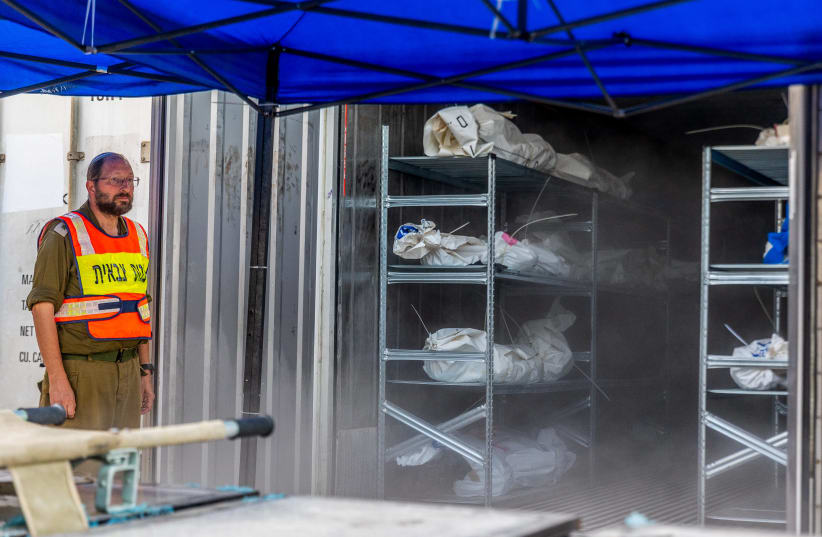

An amendment to the existing Patients Rights Law was approved by the Knesset Health Committee on Thursday to allow the Institute of Forensic Medicine at Abu Kamir to request and receive information from public health funds and hospitals, making the identification of corpses and body parts possible.
Committee chairman MK Yonatan Mashriki said the amendment preserves the privacy and dignity of the deceased and streamlines the identification work.
Institute director, Dr. Chen Kogel, said that some of the identification data and the cause of death are already stored in hospitals where the deceased were treated in the past such as x-rays and teeth. Today, the police must request a court order to allow access to this information.
Attorney Shirit Bacher, the institute’s legal advisor, noted that there is a difference between a pathologist, who examines bodies of the dead and performs lab tests versus a forensic doctor, who has the sole authority to determine the cause of death.
Bachar called for a significant incentive to certify more forensic doctors in Israel and stressed that the amendment did not include the fingerprint database, for which there is separate legislation.
She added that the amendment will also solidify the current procedure in which the institute informs the hospital of the cause of death.
Legislation is widely supported by health organizations
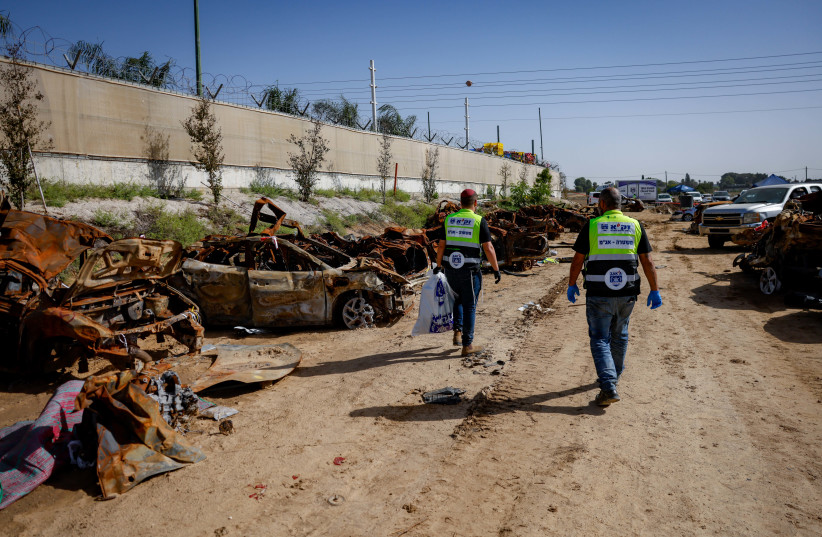
Snir Elmaliah, from Zaka’s legal consultancy, supported the amendment of the law. He testified that in dozens of cases, the identification of the deceased and burial was delayed due to inaccessible medical information.
Attorney Meir Broder, from the Health Ministry’s legal department, also backed the amendment, saying it will vastly streamline the institute’s work and may prevent the need for an autopsy.
Shai Somech, from the Justice Ministry’s public law department, was also in favor of the legislation. However, Dr. Yosef Wallfisch at the ethics bureau of Israel’s Medical Association objected to it “because it is possible that it could violate the person’s privacy and dignity.”
In the explanatory notes to the law, it is stated that the sensitive and complex work of identifying the many war victims is entrusted to the IDF and the Israeli Police by virtue of the Criminal Procedure Law, with assistance from the Institute of Forensic Medicine run under the auspices of the Health Ministry.
To fulfill its duties, the institute’s experts require medical records from medical institutions, without which it is usually not possible to begin performing an autopsy and obtain scientific identification to determine the cause of death.
The purpose of the amendment is to solidify the legal interpretation, so these methods for identifying the deceased and determining the cause of death will be considered part of medical treatment operations.
This interpretation is the basis that will allow the transfer of information to the doctors of the institute and the doctors in the ministry’s district health bureaus.
Go to the full article >>IDF trains with infantry and tanks in Golan
The training took place in an open area between several hills and included a battalion-level exercise of hundreds of soldiers.
Israel Defense Forces reserve soldiers from the Alexandroni Brigade and the 8th Armored Brigade trained in the Golan Heights this week alongside engineering forces. The training took place in an open area between several hills and included a battalion-level exercise of hundreds of soldiers.
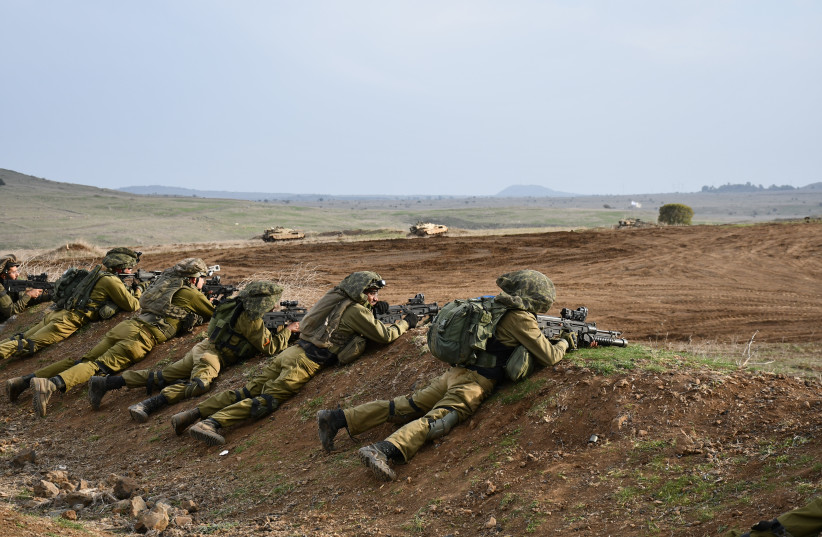
The reservists of the Alexandroni and the 8th Armored were called up in the wake of the October 7 Hamas attack on Israel. Many of them have been operating along the northern border facing Hezbollah threats. Hezbollah has carried out daily attacks targeting Israeli communities in the north. These include rocket, mortar, and drone attacks. Israel evacuated more than 40 communities along the border. However, these units are required to secure the border and face off against any Hezbollah threats.
Training is an important way to keep forces ready for any type of operation they may need to engage in. The training this week included infantry advancing through fields and along a road to conquer several objectives. The final objective was a kind of mock village, complete with numerous positions that had to be assaulted and cleared. Mock terrorists, symbolized by cardboard cut-outs and other types of targets, were hidden in the landscape.
The troops coordinated before the attack, with infantry in the center and tanks on the flanks. Several explosions represented the beginning of the drill. Tanks advanced, sometimes releasing smoke screens, while an engineering bulldozer cleared rubble that represented an obstacle for the advancing infantry. The infantry then moved amid muddy roads and berms, taking cover in high grass and behind stone walls. Marksmen, machine gunners, and soldiers with M-4 rifles used live fire to take out the mock enemies in the village. Tanks fired shells and then raced into the village, as infantry moved down a hill.
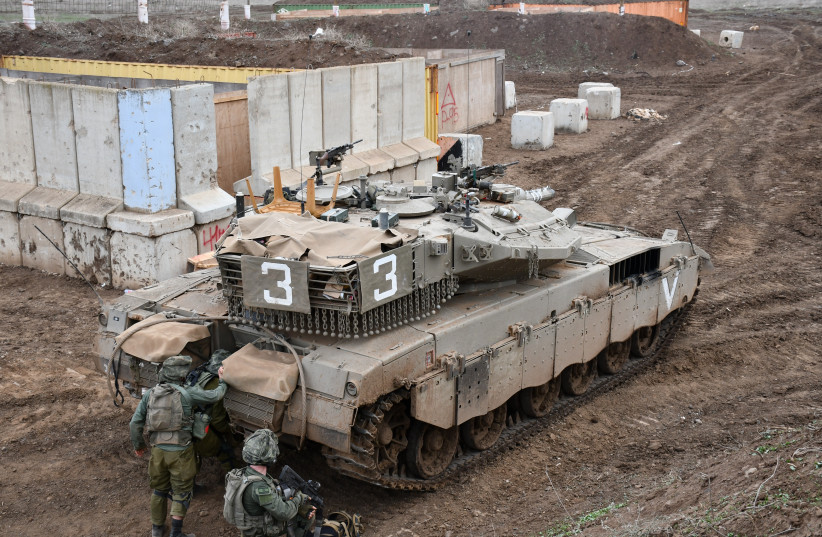
Israel's determined northern enemy
This kind of drill represents the sort of combined operations that the IDF has drilled for years. Combining infantry and tanks in operations, along with air force, engineers, and other types of technology and units, is how the IDF brings together firepower to concentrate against the enemy and move with efficiency and speed. These kinds of operations have been effective in Gaza. In the north Israel faces a complex and determined enemy in the form of Hezbollah. Preparing for threats in the north is important. For these units, which spent two months on the line and are made up of reservists called away from their families, these kinds of drills have added importance.
Officers from the brigade, including the deputy commander of the Alexandroni Brigade, praised the drill in the Golan. Each said that the units performed well.
The full story of the training in the Golan will appear in next week’s Jerusalem Post Magazine.
Go to the full article >>Brazilian MPs challenge president, visit Israel on solidarity mission
Brazilian delegation to visit Israel to show solidarity in light of Brazil's President's comments against Israel's operation in Gaza.
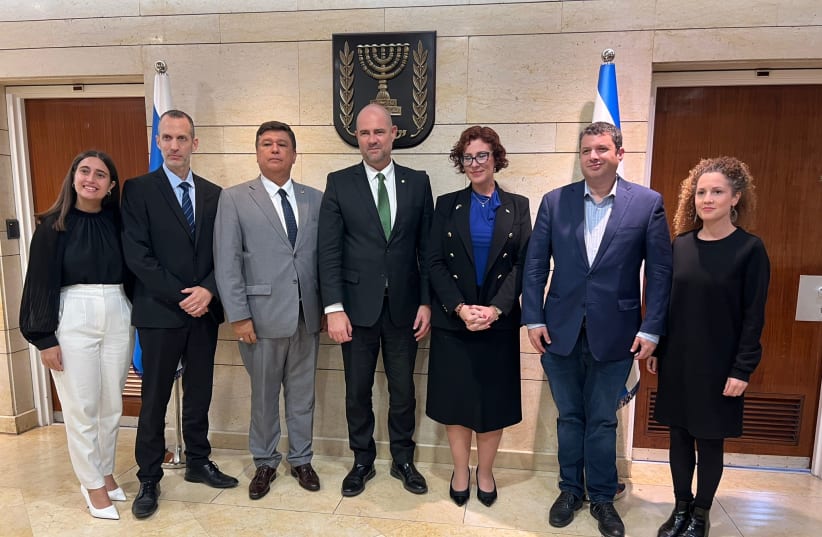

In a bold display of opposition to their president, a group of Brazilian lawmakers arrived on Wednesday in Israel on a solidarity mission.
This is the first high-level Latin American delegation since the October 7 massacre. The Israel Allies Foundation is hosting the group. It will stay in the country until Saturday night.
"We want to make it clear to the people of Israel that we do not agree with the recent statements made by Brazilian President Luiz Inácio Lula da Silva in his view of the State of Israel and the Hamas terrorist group," said chief of mission Senator Carlos Viana, who is also president of the Brazil-Israel Parliamentary Group. "We assert that Israel has the right to defend itself, to position itself, and to exist."
Silva has slammed Israel's operation in the Gaza Strip as "genocide." He also accused President Joe Biden of being "insensitive" for not putting a stop to the war.
Majority of Brazil's population supports Israel
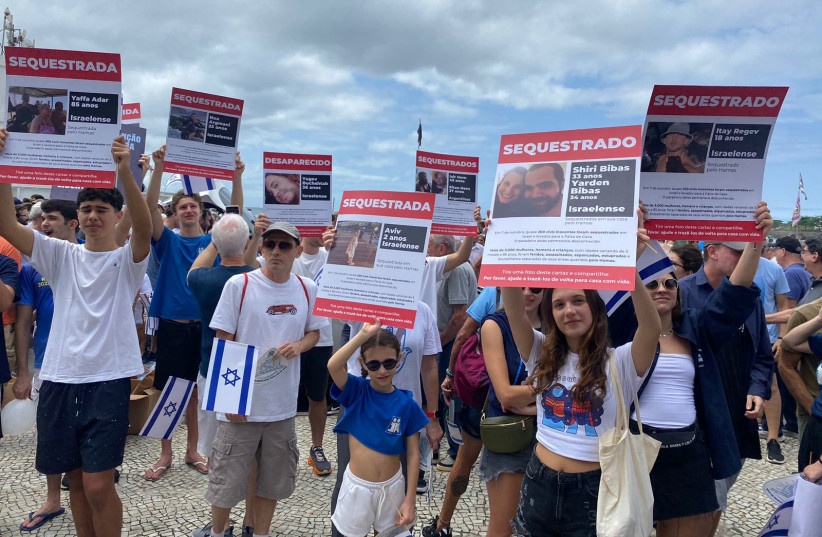
The president's comments are in contrast to the Brazilian majority; surveys show that 75% of Brazilians, mostly Christians, are in favor of Israel.
The IAF said that the representatives' goal is to boost the relationship between Brazil's Congress and the Israeli government and to return to their home country with the ability to inform their government about the situation in Israel.
Brazilian Members of Congress joining the delegation include Chief of Mission Senator Carlos Viana, Senator Alexandre Giordano, Deputy Carla Zambelli, and Deputy Sargento Gonçalves.
They will participate in several meetings at the Knesset, including one held on Wednesday with Knesset Speaker Amir Ohana and the head of the Israel-Brazil Parliamentary Friendship Group, Moshe Saada.
The delegation will also tour the Gaza Strip border towns to visit the sites of the October 7 attacks and Yad Vashem.
"This show of solidarity from Brazilian Members of Congress reflects the importance of faith-based diplomacy," said IAF President Josh Reinstein. "It is an honor to host the delegation, and we are confident that this critical visit will strengthen the alliance between our two countries."
Go to the full article >>First Arab family joins Israeli delegation in US for kidnapped son
Organized by Israel-is, a global Israeli advocacy group, the delegation's mission focused on the plight of those kidnapped in the conflict.
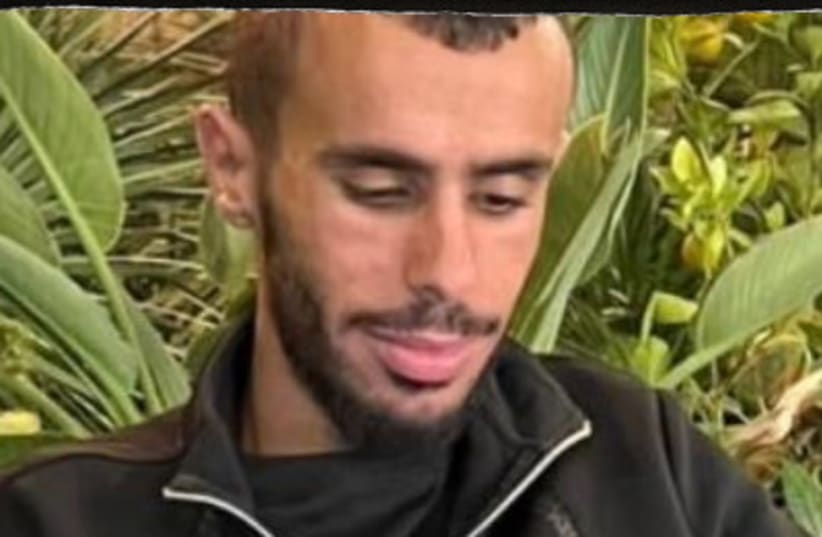

Earlier this week, in a moving journey for justice, the family of Samar Fouad Talalka, a Bedouin Israeli who was kidnapped to Gaza, joined a rapid advocacy delegation organized by the Israel-is organization to Washington. This event marked a significant stride in international efforts to secure the release of individuals abducted in the horrific terrorist attack on October 7th.
Organized by Israel-is, a global Israeli advocacy group, the delegation's mission focused on the plight of those kidnapped in the conflict. Central to their efforts was Fouad Talalka from Hura, whose son, Samar, 24, was kidnapped by Hamas while working in Kibbutz Nir Oz.
This marked the first instance of a Bedouin family participating in such an advocacy campaign, bringing attention to the October 7 tragedy, which involved the kidnapping of seven Bedouin citizens, the murder of 19, and the injury of numerous others.
Throughout the week, the delegation met with members of the US House of Representatives across the political spectrum. These included Congressman Michael McCaul from Texas, Congresswoman Chrissy Houlahan from Pennsylvania, and Jewish American Congressman Brad Schneider from Illinois. They also conveyed Samar's story to journalist Bret Stephens from The New York Times.
Expanding their advocacy, the delegation met with prominent Arab figures in Washington. During these meetings, Fouad Talalka shared his son's ordeal and advocated for his release.
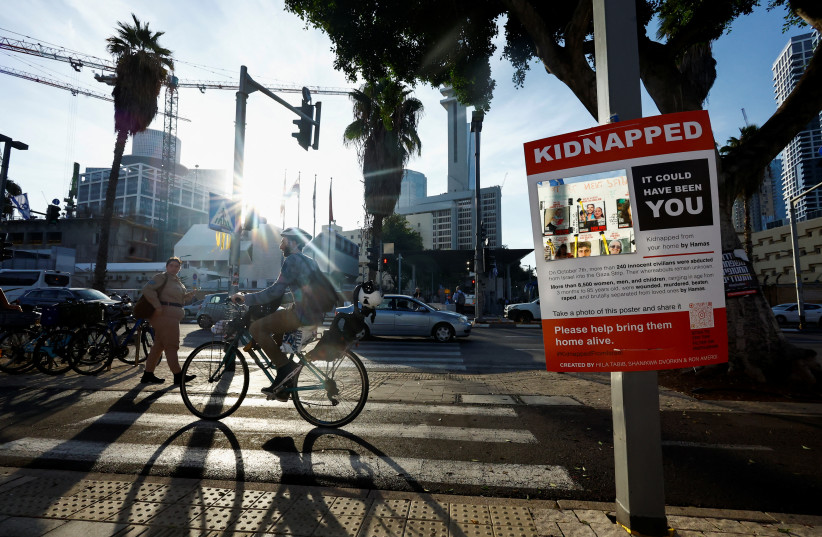
Personal appeals and international pressure
In a heartfelt plea, Fouad called for international action: "My son was violently taken to Gaza. His fate remains unknown. He's a young man seized by a terrorist group that recognizes no human distinction. We must not forget him or the others still held in Gaza. I urge the American government, all rational nations, and individuals to demand Hamas's immediate release of the kidnapped. This is beyond politics. These are innocent lives, and their captors must face justice."
Noam Bedein, the foreign relations director at Israel-is and the organizer of the delegation, highlighted the necessity of global pressure on Hamas: "To bring the kidnapped home, we must mobilize international awareness. Understanding the personal stories of these families is crucial in conveying the urgency of the situation to world leaders. Hamas's detention of hundreds of innocents from various nations, with no information on their well-being, is a crisis unmatched in modern times."
Go to the full article >>UN chief ‘endorsing Hamas terror’ by invoking Article 99 - Israel charges
Foreign Minister Eli Cohen said that UN Secretary-General Antonio Guterres’ actions “constitute support of the Hamas terrorist organization."
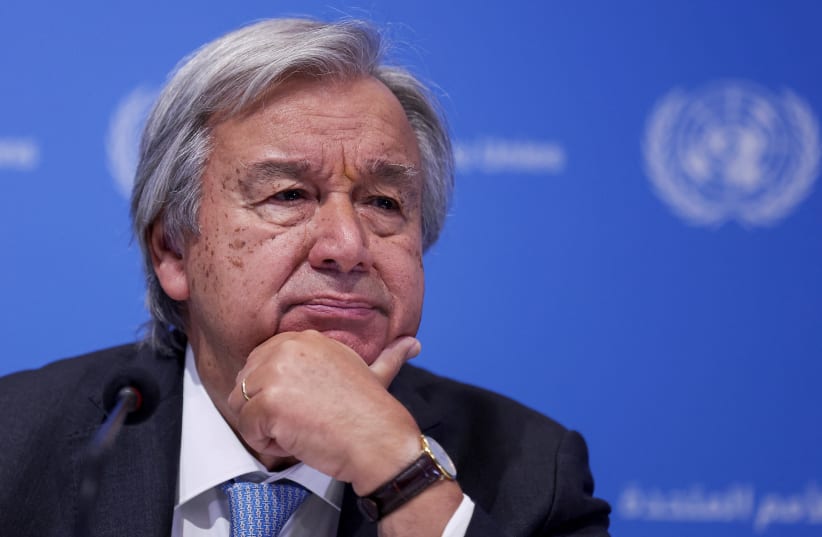

United Nations Secretary-General Antonio Guterres has endorsed Hamas terror through his invocation of Article 99, a rarely used mechanism that allows him to prompt a United Nations call for an immediate ceasefire to the Gaza war, Foreign Minister Eli Cohen said.
“Guterres’ tenure is a danger to world peace,” Cohen stated after the Secretary-General sent a letter to the Security Council under the auspices of Article 99, in which he argued that action was needed to prevent a humanitarian catastrophe.
Cohen said that Guterres’ actions “constitute support of the Hamas terrorist organization and an endorsement of the murder of the elderly, the abduction of babies and the rape of women.
“Anyone who supports world peace must support the liberation of Gaza from Hamas,” Cohen stated.
Ambassador to the UN Gilad Erdan said, “The UN needs a Secretary-General who supports the war on terror and not a Secretary-General who acts according to the script written by Hamas.”
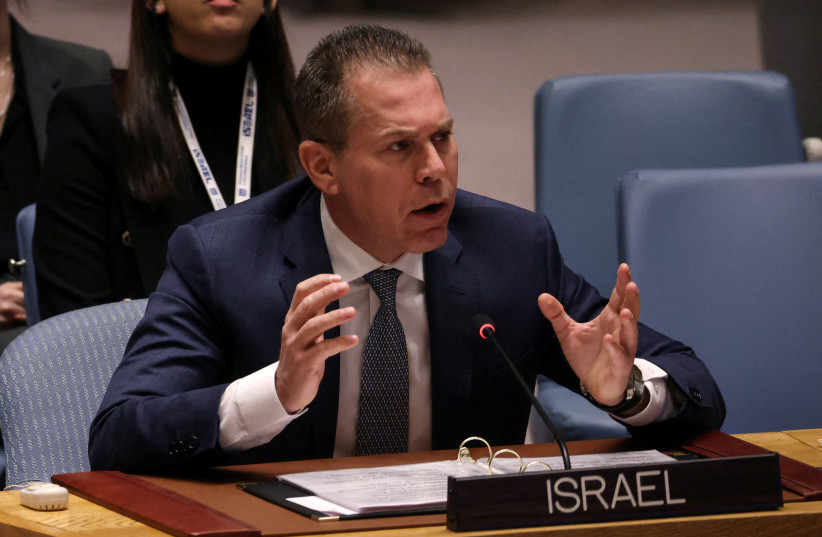
UN pushing for a ceasefire
The United Arab Emirates, which is one of 15 Security Council members, submitted a draft resolution for a ceasefire.
"The UAE draft resolution has the support of the Arab and OIC (Organisation of Islamic Cooperation) group. This is a moral and humanitarian imperative and we urge all countries to support the call of the Secretary-General," the UAE mission to the UN posted on X, formerly known as Twitter.
Diplomats said the UAE aims to put the text to a vote on Friday when the council is due to be briefed by Guterres on Gaza. To be adopted, a resolution needs at least nine votes in favor and no vetoes by the five permanent members - the United States, Russia, China, France, or Britain.
Deputy US Ambassador to the United Nations, Robert Wood, said the United States does not support any further action by the Security Council.
"However, we remain focused on the difficult and sensitive diplomacy geared to getting more hostages released, more aid flowing into Gaza, and better protection of civilians," Wood told Reuters.
Guterres in his letter to the UNSC warned, “I expect public order to completely break down soon [in Gaza] due to the desperate conditions, rendering even limited humanitarian assistance impossible” as a result of the war.
“We are facing a severe risk of collapse of the humanitarian system. The situation is fast deteriorating into a catastrophe with potentially irreversible implications for Palestinians as a whole and for peace and security in the region. Such an outcome must be avoided at all costs,” he wrote.
In his letter, Guterres condemned Hamas’ October 7 infiltration of southern Israel, in which the terror group killed over 1,200 people and seized some 250 hostages.
Some 110 of those hostages have been freed and Guterres in his letter called for the release of the remaining captives.
“Accounts of sexual violence during the attacks are appalling,” he added.
Guterres in his letter spoke of the at least 15,000 Palestinian deaths in Gaza due to war-related violence, in a way that implied that all of them were civilians. Israel has said that some 5,000 of those are Hamas terrorists.
The Security Council has passed only one resolution since the start of the war, in which it has called for a pause in the fighting and it has yet to condemn Hamas.
Israel has argued that a sustained military campaign led to the release of 105 hostages last month, 81 Israelis and 24 foreign nationals. Prime Minister Benjamin Netanyahu said this week that its military campaign to oust Hamas from Gaza was the only step that would ensure a second hostage deal.
Israel’s Ambassador to the UN Gilad Erdan said that Guterres had fallen to a “new moral low” through the use of Article 99 against Israel, charged that it was yet one more proof of his “distorted bias” against Israel.
His call for a “ceasefire is a call to keep Hamas's reign of terror in Gaza” when he should have been insisting that Hamas lay down its arms and return to the captives to end the war, Erdan stated.
Instead, he is “continue playing into Hamas' hands” by calling for a measure that would only prolong the fighting by giving Hamas hope that if it holds out long enough the international community would force an end to the war.
The United States and its ally Israel oppose a ceasefire because they believe it would only benefit Hamas. Washington instead supports pauses to protect civilians and allow for the release of hostages taken by Hamas in a deadly Oct. 7 attack on Israel.
Palestinian UN envoy Riyad Mansour said Arab ministers would discuss the draft Security Council resolution with US officials during a visit to Washington this week.
"On top of the agenda is this war has to stop," he told reporters as Arab UN ambassadors stood with him. "A ceasefire has to take place and it has to take place immediately.”
Reuters contributed to this report.
Go to the full article >>IDF begins distributing weapons, gear to Gaza border standby squads
As part of the plan, the IDF will arm some 12 standby squads per week starting near the Gaza border, before expanding to the rest of Israel.
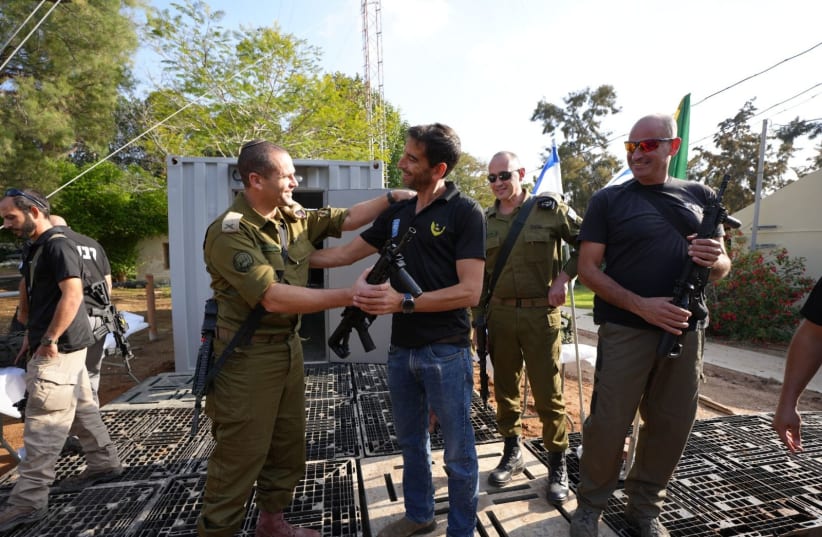

Israel's defense establishment on Thursday began distributing weaponry and protective equipment to emergency standby squads across the country, the IDF and Defense Ministry announced in a joint statement.
The program was launched in Gaza border communities on Thursday morning, with standby squads from 12 moshavim and kibbutzim near the Strip receiving M-16 rifles and protective gear from the IDF's Southern Command.
As part of the plan, the IDF will arm some 12 standby squads per week starting near the Gaza border, before expanding to the rest of Israel.
Israel's Ministry of Defense highlighted the distribution of equipment and rifles to 12 of the security response teams for various Israeli communities near the Gaza border; part of a larger program to strengthen these areas which they need when people return from being evacuated… pic.twitter.com/RWEmIpDtcR
— Seth Frantzman (@sfrantzman) December 7, 2023
In their statement, the IDF and Defense Ministry noted that the program to properly arm the emergency standby squads will aid in creating better circumstances for the return of southern Israelis to their homes, following their evacuation in the wake of the October 7 massacre and subsequent war on Hamas in Gaza.
The gear distributed by the Southern Command included ceramic vests and helmets. Plans are also in place to distribute more logistical and medical equipment to the standby squads, it was noted.
Standby squads set for massive expansion in wake of October 7
In October, Israel Police announced it would expand the use of emergency standby squads to cities across the country.
As part of the expansion, Israel Police will set up some 347 new standby squads, made up of 13,200 police volunteers.
Go to the full article >>Israel-Hamas War
- Hamas launched a massive attack on October 7, with thousands of terrorists infiltrating from the Gaza border and taking some 240 hostages into Gaza
- Over 1,200 Israelis and foreign nationals were murdered, including over 350 in the Re'im music festival and hundreds of Israeli civilians across Gaza border communities